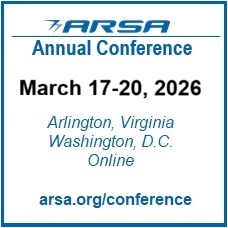The Future is Here for AFS & AIR
On March 5, the Federal Register published the FAA’s final rule on the functional reorganizations of both the Aircraft Certification Service (AIR) and Flight Standards Service (AFS). The rule is the result of ongoing efforts by each organization involving both government personnel as well as ARSA and other industry stakeholders.
Attendees at the 2018 Annual Repair Symposium will get updates from the agency on each initiative:
As part of a longer-term strategy, AIR underwent a “holistic” process to review, update and improve its certification strategy, management systems and organization to realign into a functional structure.
Future of Flight Standards Initiative
As part of a larger effort to overhaul culture and improve efficiency/responsiveness, AFS reorganized into function-based structure (rather than geography):
- Four directors.
- Eight deputy directors.
- Twenty-eight division managers.
- Regional structure replaced by four functional organizations: Air Carrier, General Aviation, Standards, and Foundational Business.
To review the final rule, follow the link below to the Federal Register:
Final Rule: Aviation Safety Organization Changes
Published: 03/05/2018
Docket #: FAA-2018-0119
Effective date: 03/05/2018
The FAA Aircraft Certification Service (AIR) and Flight Standards Service (AFS) have reorganized to align with functional organization design concepts. The AIR reorganization included eliminating product directorates and restructuring and re-designating field offices. The AFS reorganization included eliminating geographic regions, realigning headquarters organizations, and restructuring field offices. Currently, various rules in the Code of Federal Regulations refer to specific AIR and AFS offices that are obsolete after the reorganizations. This rule replaces specific references with generic references not dependent on any particular office structure. This rule does not impose any new obligations and is only intended to eliminate any confusion about with whom regulated entities and other persons should interact when complying with these various rules in the future.








